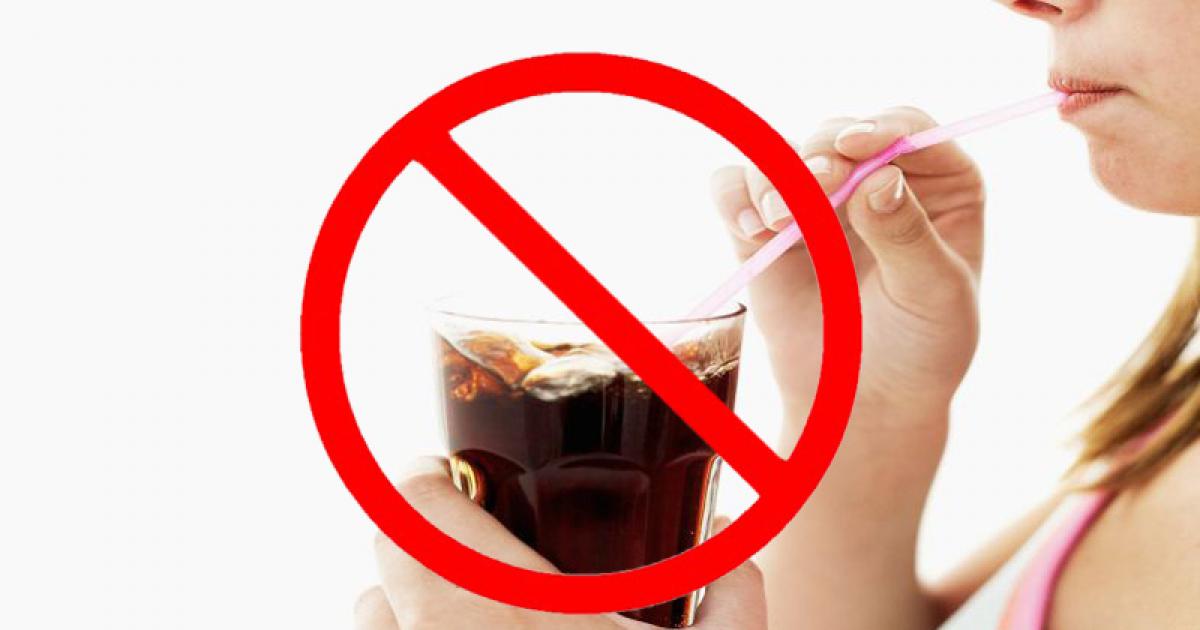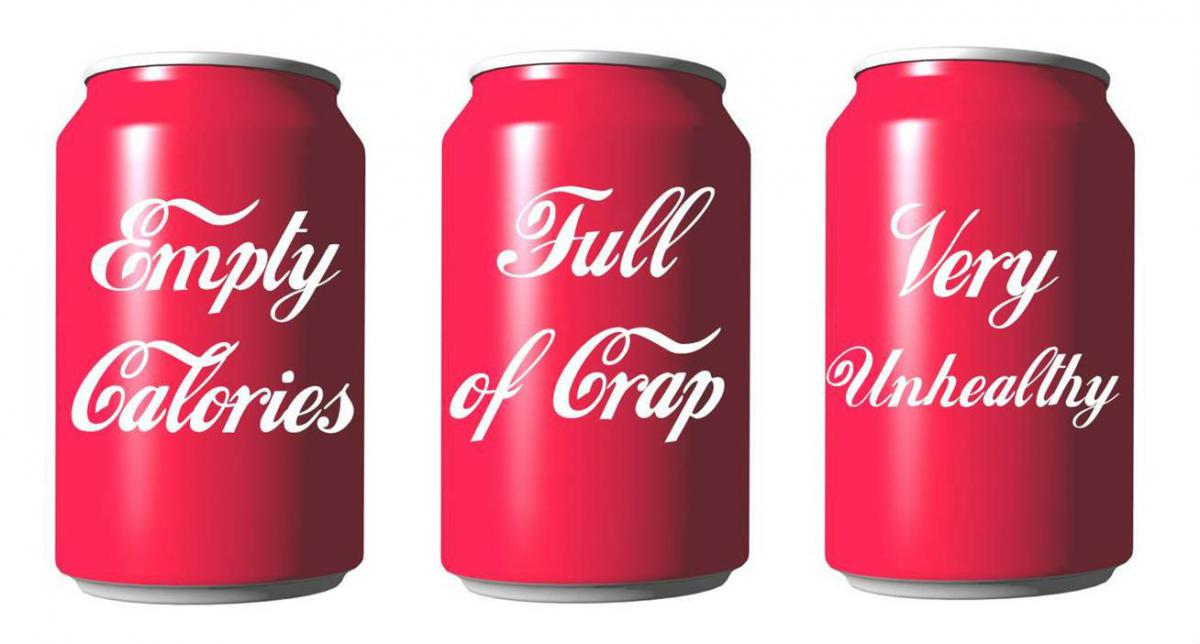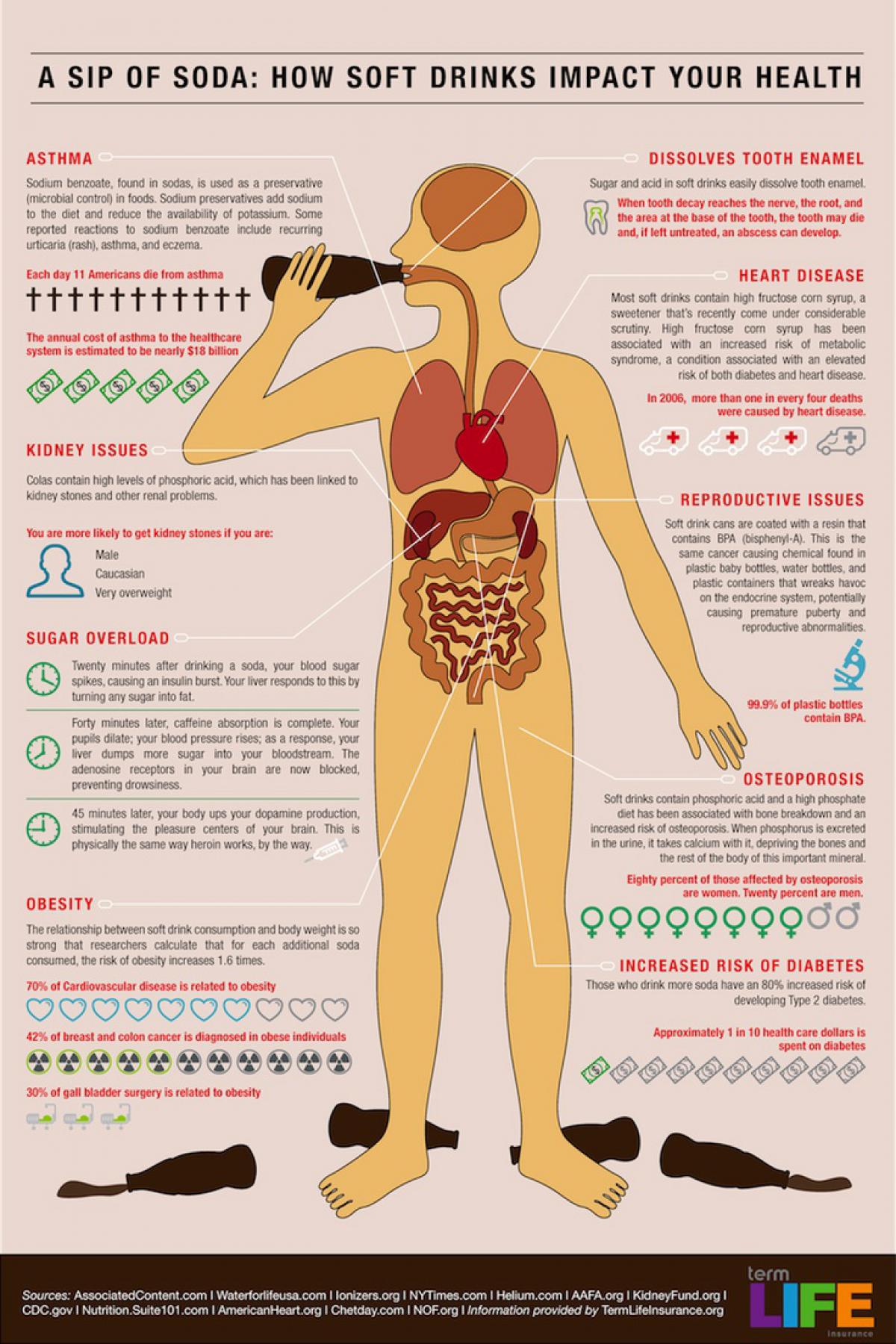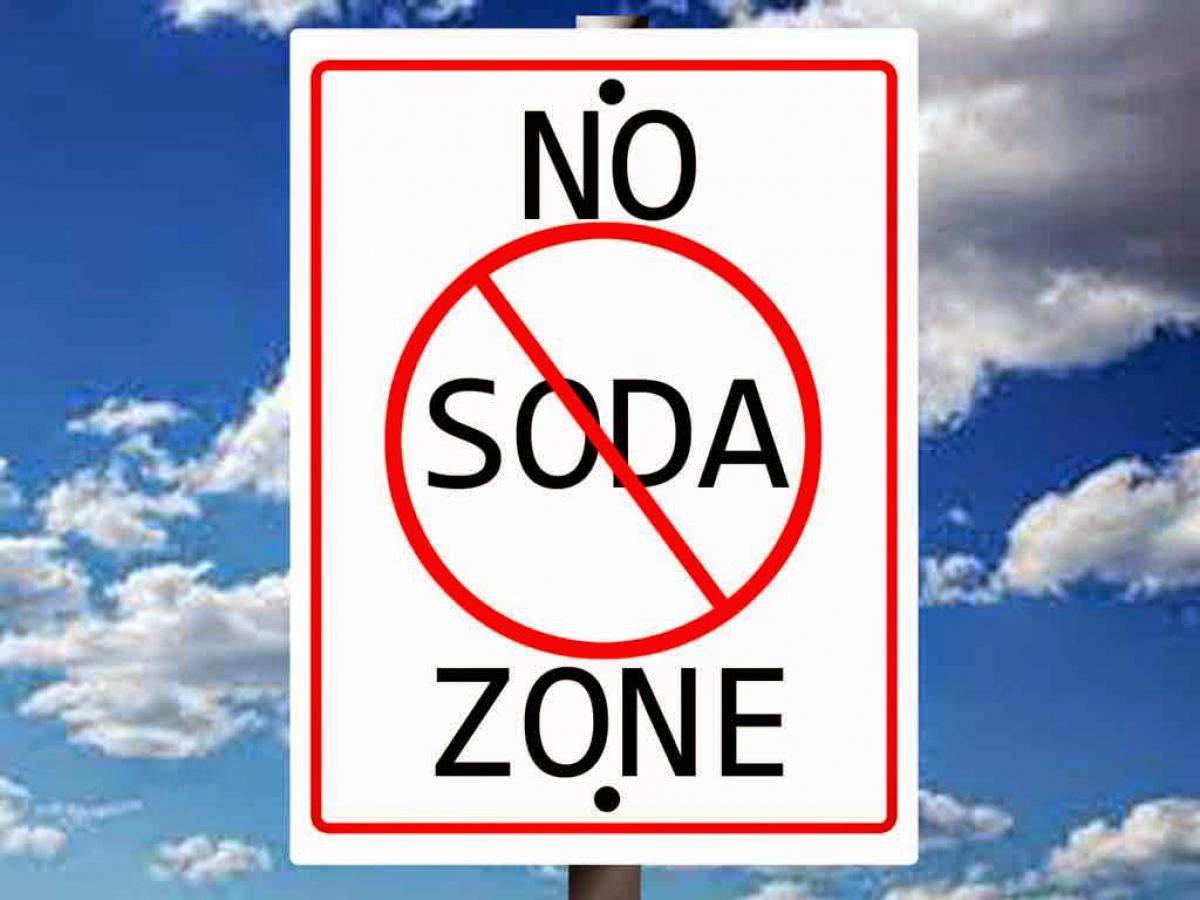
Most people love soft drinks and who can blame them, they are so sweet and believed to be one of the best ways for cooling off in a hot day. However, more and more scientific researches prove the unhealthy effects to the body, caused by the regular consumption of fizzy drinks. When you think about it, just ten years ago, soft drinks were more expensive but today, a liter of bottled water is twice more expensive than your favorite soft drink. There isn’t much logic in that marketing approach, but that is the world we live in. Well, soft drink companies try their best to make us buy more and more of their products and every time you turn the TV on, you can see at least five commercials about soft drinks presented as refreshing.
Despite the efforts of manufacturers and PRs to convince the communities that the fizzy drinks are absolutely harmless, the truth is that they are full of aspartame and other artificial sweeteners. The advertising campaigns of the diet soft drinks are even more intense, claiming that you can basically eat whatever you want as long as you drink “diet” soft drink. Well, here is one fact for you. Aspartame (artificial sweetener added in almost all of the diet soft drinks and some other products on the market today) is 200 times sweeter than sugar. It may not contain any calories, but it makes your blood sugar reach unacceptably high levels. In other words, if you consume aspartame products on a daily basis, your blood sugar will be up all the time, which will inevitably lead to diabetes. You don’t have to be a Doctor of Medicine (M.D.) to spot the link between the high blood sugar and the type 2 diabetes.

First, let’s see what happens inside your body after you consume a can of ordinary soft drink (non-diet).
Within 10 minutes, all the sugar is already in your system. After 20 minutes, your blood sugar hits the highest levels and your liver starts producing great amounts of insulin. Insulin stores the sugar into the fat cells. After 40 minutes, your body absorbs all the caffeine and your blood pressure rises, so your liver produces even more sugar that enter into your blood stream. After 45 minutes, your brain starts the production of dopamine, which is the hormone of pleasure (the same one that is produced when having sex or taking cocaine). One hour after the first sip of a soft drink, you will start craving for more, which is so-called “sugar crash”.
Here are some other facts about soft drinks that will make you think twice the next time you pass by the shelf and the great variety of available soft drinks makes it difficult to resist grabbing a bottle or two.

There is a link between sugary fizzy drinks and cancer
There are researches that have found out that women, who consume a lot of fizzy drinks of a daily basis are more likely to develop breast cancer. According to these researches led by the Laval University in Quebec, women who had more than one sugary drink a day, ended up with higher density of their breasts, which puts them in higher risk of developing cancer.
Fizzy drinks attack your teeth
Everybody knows that sugar leads to decay on your teeth. However, according to a research from the University of Birmingham, sugary fizzy drinks are up to ten times more dangerous for the teeth than a regular fruit juice, although they contain the similar amounts of sugar. Scientists think that the answer lies within the fact that fizzy drinks contain citric acid.
Soft drinks can damage the bones
Cola based soft drinks contain a lot of phosphoric acids, which gives that tangy taste and tingling when swallowed. A research of the University of Boston found that people who drink cola based soft drinks had lower mineral density into their bones. Another interesting fact is that soft drinks reduce the amounts of calcium and other valuable for the bones nutrients, which especially concerns the young age groups.
Soft drinks make you bloated
When you drink all kinds of soft drinks, the gas produced from the carbonic acids stuffs your stomach with air, which produces pressure that makes your stomach belch. The gases can also irritate your stomach, bowel, which leads to digestive system problems.
Weight gain
Soft drinks are packed with many so-called empty calories. Empty calories mean your body cannot use these calories for energy directly after the consumption. Firstly, all that sugar is stored in the fat cells and then your body use fat cells to produce energy. This process makes you obese and spends a lot of your metabolic energy.

Reducing the consumption of fizzy drinks is easier said than done but all efforts you make in that direction are worthy of making. If you are so obsessed with drinking a cup of soft drink with every meal, then, the gradual reduction is the best possible solution. Every drastic change in your lifestyle causes your body unnecessary stress. It’s pretty much the same when you are trying to go on a diet or stop smoking. Your body needs some time in order to get used to the changes. As for the soft drinks themselves, you owe it to your body to make an attempt for giving up on them or at least breaking the habit of consuming them on a regular basis.

Leave a Reply